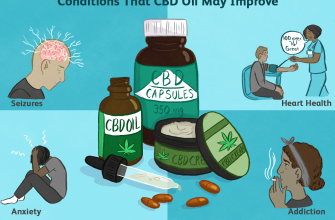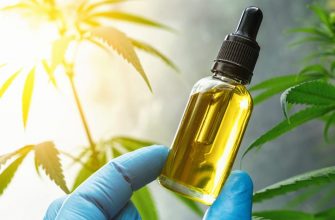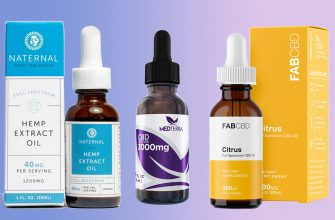Although CBD has certain benefits for certain mental health conditions, researchers are still trying to understand its impact on behavioral and neurological conditions. Here’s what you need to know about potential benefits, side effects, and more.
What the study says
Research on CBD and ADHD is not as frequent, as it usually involves the hemp plant as a whole, rather than CBD alone.
-
Symptom management
Cannabis use and ADHD are independently associated with impaired attention, inhibition, and functioning. Because of this, many researchers suggest that cannabis use will exacerbate existing ADHD symptoms. However, there is no evidence to support or contradict this.
One 2015 study looked at the association between ADHD, depression, and marijuana use in high school students. While the researchers found that some students used marijuana to manage depressive symptoms, its overall effect on these symptoms was unclear.
A 2013 study on the ADHD subtype and cannabis use also produced interesting results. After collecting data from 2,811 current cannabis users, the researchers found that daily cannabis users reported symptoms of hyperactivity-impulsivity without using it.
More research is needed to truly understand what benefits, if any, CBD may represent in the management of ADHD.
-
Alcohol and drug abuse
Most of the research focuses on ADHD as a risk factor for the development of a substance use disorder. One 2014 Trusted Source study assessed cannabis use and ADHD symptoms in 376 college students.
The researchers found that current and childhood inattention were associated with more severe cannabis use and addiction. They also found that participants who exhibited hyperactive-impulsive behavior as children began using cannabis earlier than participants who did not.
A separate 2017 study assessed 197 students in the same age group, but looked more broadly at the role of impulsivity in young people with ADHD and risk factors for alcohol and drug addiction. The authors concluded that young people with ADHD are more likely to use illicit drugs and alcohol.
How CBD Works
When you consume CBD oil, the compounds come into contact with two receptors in your body. These receptors, known as CB1 and CB2, have a direct effect on certain parts of your body.
CB1 is more prevalent in the brain and has been directly linked to epilepsy. CB2 is more abundant in the immune system. It is associated with pain and inflammation. Your body does not actually use any of the compounds found in the oil. The CBD compounds encourage your body to use more of the cannabinoids it naturally produces.
Boosting naturally occurring cannabinoids can result in a number of benefits, including reduced anxiety and decreased hyperactivity.
Potential Benefits of CBD Over Conventional Therapy
Traditional ADHD medications fall into two categories: stimulants and non-stimulants.
Stimulant treatment for ADHD is fast-acting and widely used. In fact, 70 to 80 percent of trusted American children use this type of treatment to manage symptoms of attention disorder.
However, stimulant drugs are not without side effects. These include:
- insomnia
- poor appetite
- weight loss
- headache
- dry mouth
- mood changes
Although non-stimulant medications are less likely to cause side effects, they are still possible. They may include:
- stomach upset
- poor appetite
- weight loss
- nausea
- headache
- dizziness
- fatigue
- mood changes
Stimulant and non-stimulant drugs are available by prescription only. You need to see a doctor and undergo regular check-ups to continue using.
CBD oil has been shown to be well tolerated at doses up to 1500 mg per day. Depending on the dose, it can take anywhere from 20 minutes to two hours before you feel its effect. The side effects of CBD oil are generally considered minimal. These may include indigestion and drowsiness.
CBD oil may also be available over the counter in places where it is legally available.
How to use CBD oil
CBD oil is usually taken through vaporization or oral ingestion.
Oral CBD is not considered to cause side effects, so beginners can start with CBD oil or capsules. It is enough to drip under the tongue or take a capsule.
CBD vaporization can be helpful if you need immediate symptom relief. The inhalation process delivers compounds into the bloodstream much faster than other methods. You can use CBD e-liquids for this.
There are currently no official guidelines for using CBD oil to treat the traditional symptoms of ADHD. The researchers looked at doses for related symptoms such as anxiety. While more research is needed, one 2017 review suggests that a single 600 mg dose may be enough to reduce anxiety.
If CBD is new to you, you should start with the lowest dose possible – around 25 milligrams. Gradually increasing the dosage will allow your body to get used to the oil and reduce the risk of side effects.
Potential risks and side effects
Some people may experience stomach upset or drowsiness when they first start taking the oil. Starting at a lower dose may help reduce the risk of these side effects.
Other side effects may depend on how you use the oil. For example, vaporization can cause lung irritation. This can lead to chronic coughing, shortness of breath, and other breathing difficulties.
Your doctor may advise you not to take vaporizers or other inhalation methods if you have asthma or any other type of lung disease. If you’re unsure about possible side effects or how your body can deal with them, talk to your doctor.
Can CBD be given to children?
Due to the stigma associated with marijuana, THC, and CBD, no well-designed study has looked at the use of CBD in children. Instead, most reports are case studies reported by physicians or researchers.
For example, one 2013 ReportTrusted Source asked parents in California to conduct a Facebook survey on how to give a child CBD oil to treat epilepsy. Nineteen parents reported administering the drug to their child. Side effects included drowsiness and fatigue.
In a similar 2015 Facebook Trusted Source survey, 117 parents of children with epilepsy reported using this product safely for their child. These parents reported improvements in sleep, wakefulness, and mood with regular use of CBD.
As with these surveys, many of the individual reviews of oil use in children are characteristic of epilepsy. However, this does not mean that CBD cannot be used to treat ADHD symptoms. It just hasn’t been studied specifically for this use.
If you think CBD may ease your child’s symptoms, talk to your doctor. You can discuss possible risks and benefits.
Source: https://www.healthline.com/health/adhd/cbd-oil-for-adhd#research




